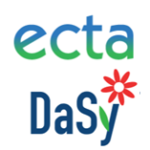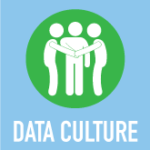This DaSy toolkit provides an orientation to IDEA data and other data-related topics to help stakeholders meaningfully participate in conversations about programmatic issues and decisions.
Stakeholder Knowledge Toolkit


This DaSy toolkit provides an orientation to IDEA data and other data-related topics to help stakeholders meaningfully participate in conversations about programmatic issues and decisions.

February 13, 2019 Learn about best practices for evaluating practice change and fidelity, including characteristics of a high-quality data collection too. Hear from one state on how they have made […]

This webinar explored DaSy’s new Data Culture Toolkit, following the five key steps to building a culture of data use in a state or local program: Formalize your data team […]

This 2018 document provides answers to commonly asked questions about age anchoring as it applies to the COS process. It is designed as a reference for practitioners, as well as […]

These 2018 documents are intended to help states supplement and reinforce the information in the Child Outcomes Summary (COS) Process online learning module. Guidance for Preparing and Implementing Effective Training […]

This webinar introduces a new resource, the Local Child Outcomes Measurement System (L-COMS). The L-COMS can support local programs, such as Early Intervention programs or school districts, in examining and […]

In this first of three 30 minute data visualization talks, presenters defined data visualization and addressed 5 common pitfalls when creating charts: Not clearly articulating your message; beginning with the […]